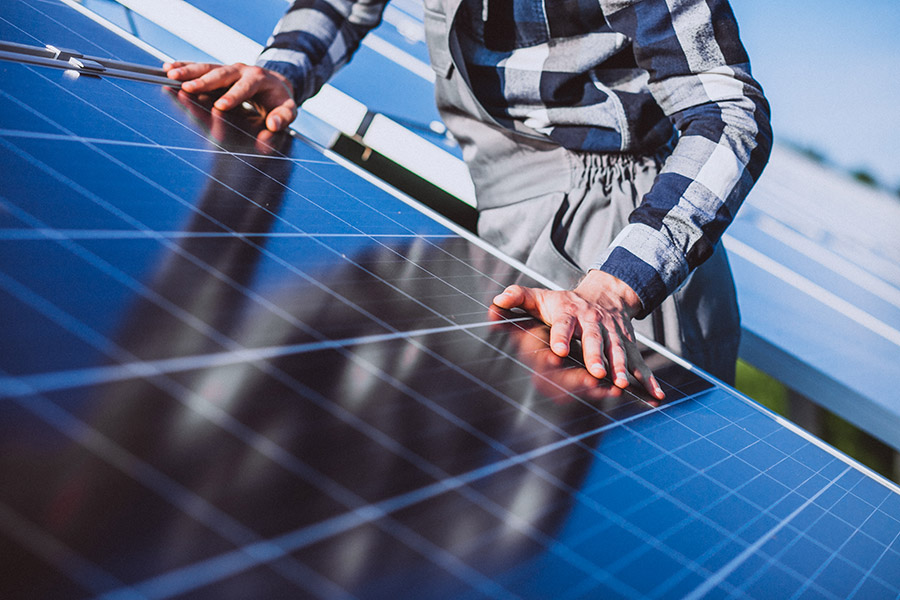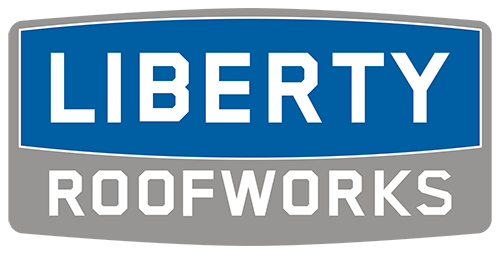Solar panels are appearing more and more on houses across the country each year. While the concept of solar power has been around for a while, there is still a lot of confusion out there about how exactly solar panels work and the world of solar energy in general. Today we are going to cover all things solar panels ranging from how they work to what their benefits are to help clear up some confusion and help you decide if solar panels are worth considering for your home. If you enjoy this solar content be sure to stay tuned as we will have more posted in the coming weeks.

What are solar panels?
Solar panels are often shaped as long rectangles and they convert light into electricity. The light we are referring to here is from the Sun, and it is now being used to power entire houses in some cases.
One solar panel consists of lots of smaller solar cells. While each individual solar cell may not accumulate much on its own, when all of the energy collected from these smaller cells are combined, a decent amount of solar power is accumulated which can be used in a variety of ways. The more light that hits these panels and cells equates to more energy/electricity being made. This means that the more solar panels you have linked together, the more energy you will be able to generate.
How exactly do solar panels work?
Now that we know a bit more about what solar panels are and the gist of what they do, here is a bit of the science behind it. As always, we recommend doing your research before making a decision for your home and in this case, that means knowing how exactly solar panels work.
Essentially what happens is photons, or particles of light hits solar cells resulting in the electrons, or negatively charged particles, being removed from their individual atoms. These electrons then flow through electrical circuits which in turn create electricity. This is a very simplified way of explaining the full process but the results are the same.
Benefits of solar energy
There are lots of benefits that come with solar energy and today we will be covering a few of them. One major benefit is that it is a renewable energy source meaning it never runs out. The sun has been around since the beginning of time and it’s not going anywhere. The electricity that is present in most homes today is provided by a non-renewable energy source, such as goal and natural gas, meaning it is limited.
Renewable energy sources such as solar power are great for the environment too. Converting fossil fuels such as coal and natural gas into energy releases a large number of harmful greenhouse gasses into the air. With solar power, these greenhouse gasses are eliminated and help aid in the fight against climate change while also preserving our non-renewable resources.
While the benefits to the environment are huge, going solar can also save you money. Solar panels often lower your monthly utility bills. The amount you will save depends on a few factors such as how much electricity you use, how many hours of direct sunlight there is each day, as well as the size and angle of your roof just to name a few. Having solar panels installed also boosts the value of your home since it is considered an upgrade.
The final solar power/energy benefit we will be covering today is how they respond to power outages. Non-solar homes can lose power for days at a time after severe weather or other unforeseen circumstances. This causes food to go bad, homes to overheat or reach very low temperatures, and more. Homes that utilize solar power and have solar batteries will not have to deal with these repercussions. Solar batteries will keep your lights and appliances running while also helping to limit the strain on your power grid. Solar batteries serve as generators during power outages but without the loud noise, price, and of course leaving a negative impact on the environment. If you live in an area prone to power outages or bad weather, it may be worth considering having some solar panels installed.
Wrapping it up
Solar power is a unique form of energy that we are fortunate to have discovered, and the information we shared here today is just an overview of what it is. We hope that you now have a better understanding of what solar panels are, how they work, and what benefits come with them. The world is ever-changing and solar power will become even more prevalent in years to come.
We are here to help!
Are you considering having solar panels installed on your roof? At Liberty Roofworks we got you covered! With over two decades of professional roofing experience and years of solar panel installation under our belts, we would love to help set you up for your solar energy journey.
Whether you’re wondering how many panels you would need or if you’re already set on wanting them, we are here to help. We will gladly walk you through the process and happily answer any questions you may have along the way. Rooftop solar panels are installable on metal, tile, shingle, and flat roofs. When working with us we will provide you with a pre-construction consultation as well as a Panasonic warranty. We also will provide you with an EverVolt™ battery storage system which will allow you to store your collected solar energy.
If you are interested in taking the next steps or getting more information please contact us today and we will get back to you right away. We make the solar panel installation process quick and easy!
Frequently Asked Questions about Solar Panels
We just threw a lot of information at you and it’s perfectly normal to have some questions. Here are some of the most common questions we get asked about solar panels and their installation process. If your question is still not answered please contact us and we will be more than happy to personally answer it for you.
Q: How many solar panels does it take to power a house?
A: The average home requires an average of 20 to 24 solar panels if you want it to fully cover its electric usage. This is just an average and this number can change based on factors such as location, the panel power, how much electricity you use on average, and more. If you want to get a more accurate estimate it is best to contact a company that installs solar panels to give you a proper quote.
Q: How long is the average lifespan of one solar panel?
A: On average the lifespan of a solar panel is roughly 25 to 30 years and requires very little maintenance if any, however, it is recommended that you clean them every now and then to get the most out of your investment. As solar panels get older it is not uncommon for them to experience some wear and tear as well as a decrease in electricity production.
Q: Will my solar panels still work even in the winter months?
A: Yes they will! Regardless of what the weather is like, your panels will not stop converting the sunlight to power. However, your panel’s output will be higher during the hot summer months and a bit lower during the winter.
Q: Will solar panels be too heavy for my roof?
A: The solar panels out there that are made specifically for residential roofs will not be too heavy or impact the integrity of your roof. It is worth noting that there are some other factors that can play a part in your roof not being able to support these panels such as existing roof damage or other problems with the infrastructure. Prior to having solar panels installed, it is best to have a reputable roofing contractor perform an inspection of your roof and address any damage beforehand to avoid any complications.
Q: Will solar panels affect my home’s value?
A: Yes they will! Having solar panels installed will increase the value of your home. In fact, it is estimated that the average-sized solar-powered home can cost an additional $15,000 or more depending on how recently the panels were installed. Selling your solar-powered home will be easier too. Houses with solar panels installed can sell up to 20% faster than homes without them.
Q: How long does it take to install solar panels and can I do it myself?
A: On average, a normal solar panel installation can range anywhere from 4-6 hours and be completed in one workday. This time will vary based on the size of your system as well as other factors such as weather conditions or customer availability. While you technically can install them by yourself, we strongly suggest having a professional do it to avoid any issues such as damage, improper installation, and more.
